Join the knowis team

We trust our employees and like to hand over responsibility. We are looking for people who can develop and implement creative solutions in an environment of demanding goals, constantly new challenges and different opinions.
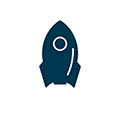
Everything starts with passion. It generates innovative ideas that push us to the limit of what is possible. When the ability of an individual meets a team in which each opinion is heard, they can successfully shape the future together.
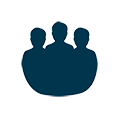
We offer an inspiring place to work. We are proud of our team, the culture we live in, and the solutions we offer our customers. If you want to bring your passion to a team, we have the right place for you.
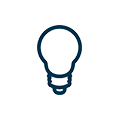
Your opinion is important to us. We are convinced that we can only develop further if we treat each other in an open and respectful way and everyone can express their views at any time. Each of your ideas is heard.
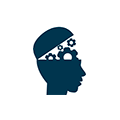
Every employee is challenged and supported by us. Free space for innovative ideas and cross-discipline experiences guarantee a short learning curve. Take your career into your own hands and start with us.
You want to bring your expertise and personality into an agile, innovative company? At knowis, everyone can take their careers into their own hands and shape the future successfully with their ideas.
We promote lifelong learning and offer you many opportunities and options at any time. Ready for your next milestone?
Yesterday you were still in university or in training, today you start your career. Now the future can begin – and you can be successful right from the start.
Whether as a well-trained skilled worker or highly qualified graduate – we have many interesting tasks awaiting you.
Theory alone is not enough for you and you would like to get a taste of practice? We offer you various opportunities to do so. Not only will you get to know our company better, but you will also gain valuable practical experience.
Do an internship > Join us as a working student > Write your thesis with usAt knowis, your talent is in demand. Apply now!
Theory alone is not enough for you and you would like to get a taste of practice? We offer you various opportunities to do so. Not only will you get to know our company better, but you will also gain valuable practical experience.
Do an internship > Join us as a working student > Write your thesis with usAt knowis, your talent is in demand. Apply now!
Everything starts with passion. It drives us to redefine things. It generates innovative ideas that push us to the limits of what is possible. When the ability of an individual meets a team in which each opinion is heard, they can successfully shape the future together.
We offer an inspiring place to work. We are proud of our team, the culture we live in, and the solutions we offer our customers. If you want to bring your passion to a team, we have the right place for you.
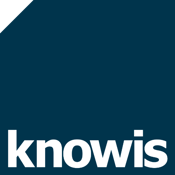
Who could give you better insights than our employees?
Here you have the opportunity to meet colleagues from our departments and find out more about their responsibilities and their work routine at knowis. Just click through the different profiles and find your personal, direct contact with knowis.
Software Architect
"I am always looking for new challenges – at knowis I never get bored as I am working with the latest technologies."
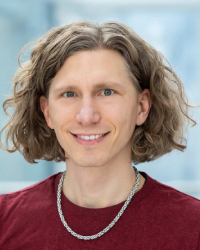
Michael, what is your typical working day like and what are your tasks?
This question is difficult to answer – I rarely have a typical working day. I started my knowis career as a software developer, so initially I spent most of my time programming, of course, but I also took on architectural tasks right from the beginning. Meanwhile, I have specialized in the field of software architecture. What I particularly like is that the tasks range from strategic long-term planning and implementation to "we need a solution in a quarter of an hour". On the one hand, I like to dive deep into tasks, on the other hand, I like the kick of putting out fires. I also see aggregating and passing on the resulting knowledge as an important part of my work at knowis, because this is how you create something that persists and is helpful particularly for new colleagues.
What makes your job so special?
Changing tasks, often across teams, and working with new technologies and systems are special features that make the job really interesting for me. Current cloud technologies or methods such as SaaS (Software as a Service), DevOps solutions, Continuous Deployment and Continuous Integration are not yet so established on the market and exciting for us programmers and architects, as we often do pioneering work. The specialists in our IT department cover a broad range of qualifications, so we can handle many processes in-house. The close exchange with the development laboratories of the big IT players such as IBM or Microsoft is also a great enrichment for me – this networking opportunity is not something you are offered in every job.
How was your application process? What do applicants have to bring with them to be successful in your field?
I was positively surprised how much knowis responds to the applicant – we talked a lot about my previous professional experience and what I like to work on the most, which resulted in a constructive conversation. This is also helpful advice I would like to give applicants: Be open about your experiences and expectations, even if your CV may not be so extensive yet. No one is born a master. We are looking for employees with team spirit and open-mindedness towards new technologies. A solid basis in programming languages like JavaScript, Java or Python is great, but a really good programmer is someone who wants to get to the bottom of problems and, following the principle of 'trial and error', remains curious and eager to experiment. Be it coding or as a consultant for the team.
Do you enjoy living in Regensburg? You are also relatively new in the city.
The city of Regensburg has a lot to offer. I used to live in Munich and although Regensburg is much smaller, it can keep up very well. In summer I like to lie on the Jahninsel or cool off in the Danube. At this time of year I can also recommend the Jazz-Weekend, when the whole city turns into a concert stage. For the colder season, I think a season pass for the local theater is a great option. For its size, the Regensburg theater offers an extensive program of drama, dance and music theater – but also the 'Alte Mälzerei' is a great location for everyone interested in culture.
Product Manager
“At knowis, I found the opportunity to combine my technical banking knowledge and my enthusiasm for IT in a single job.“
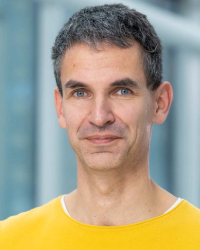
Markus, how did you come across knowis and how long have you been here?
I have been with knowis for five years now. Previously, I worked in various banks in the lending business for many years. I therefore know from my own experience what is important to our clients, banks and financial institutions. Because I've always been very interested in IT, at some point in my life I wanted to switch to this field as a profession. So, the question was: where do I find a job at the intersection of banking and IT? That’s how I came to knowis.
You only recently became a product manager – what did you do previously with knowis?
At the beginning of my knowis career, I worked as a business analyst. During that time, I looked after many projects while working at the customer's site. The requirements for a product manager are in some respects similar to the tasks that I worked on as a business analyst for many years. In my new position, this helps a lot to understand the big picture, for example, by knowing how the knowis banking platform is actually used and what our customers' experience has been with it. That's why switching to product management was the right step for me to continue to use my strengths and at the same time expand my knowledge.
What are your responsibilities as a product manager?
As an agile software company, we think and plan in release cycles. We want to renew and improve our software on a regular basis, so as a product manager, I deal a lot with feature requests and the enhancement of our software, as well as the prioritization of the different requirements.
New requirements come either directly from the customer or are suggested internally, for example, by our business analysts or the solution engineers. My job is to translate the often rather unspecific needs. This means I must think carefully about what is needed in particular and whether it might already be feasible in other ways. At the same time, it is always important to assess the development effort of a feature; for this part, I collaborate with an IT architect or developer.
Ultimately, I have to weigh how sensible the implementation of such a feature would be, that is to measure the business value against the development effort. Before each release, for example, we try to estimate the sensibility in a ‘business poker' process, where we discuss everything in detail and view the features from different angles. If a feature is to be considered for the next release, I define criteria that must be met during development. These are compared after the implementation and verified by the testing team – so you can already see: product management at knowis is closely integrated with other departments.
What skills or special abilities should you bring as a product manager?
It is very important to develop an understanding of how our software is used. When assessing the 'value' of a feature, a product manager should be able to capture the customer's view and, based on that, prioritize the requirements, while at the same time considering the implementation effort. In addition, the constant development of the knowis software platform is an important topic that needs to be structured and clearly defined.
A basic understanding of the technologies used, and the ability to work closely and effectively with different stakeholders, are among the requirements that a Product Manager should bring to knowis.
What do you like to do in your free time?
Most of all, I spend time with my family, or I am outside in nature, for example, when mountain biking. Also, I really enjoy water, which is of course very convenient here, as Regensburg is beautifully situated on the banks of the Danube. I love swimming there in the summer or just strolling along the river.
Head of Engineering
“Working with new, modern technologies like cloud technology makes my work very exciting and challenging at the same time."
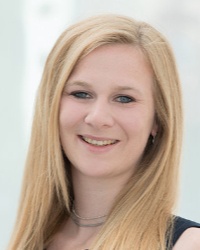
What does your typical work day at knowis look like and what are your tasks as a software engineer?
First and foremost, I am involved in the development of our cloud platform. I work with the programming languages JavaScript and TypeScript, but also modern cloud technologies are used.
Over time, my job has also changed a bit – the focus is now more on IT architecture. Incidentally, that's one of the reasons why I like to work for knowis: everyone can develop their own professional interests or reorient themselves as far as possible. As head of one of the engineering teams, I now also take on organizational tasks and am the contact person for questions and problems of my colleagues.
What is special about the work at knowis?
Knowis has grown very fast in recent years. This always results in new fields of activity and positions. The employees themselves can grow into the new roles because the positions do not need to be created and filled, but arise as needed. Anyone who engages in knowis can definitely take on more responsibility and new tasks. I find it very pleasant that you can work autonomously and independently and are not dictated to from above.
How was your job interview? Do you have tips for the application process at knowis?
The atmosphere during my conversation was very relaxed and enjoyable. At knowis, the personality of the applicants is still a decisive factor for the selection and therefore we also talked a lot about me as a person, my previous work experience and what motivates me in my work. Shortly after the conversation, I got a commitment from knowis.
Currently, as head of engineering, I lead a small team myself and I have been involved in a lot of job interviews. It is important to me personally that the candidate is passionate about the subject and has a clear idea of how he or she can support our team.
At the time of your application, knowis was still a small Regensburg start-up. How did you find out about us?
Knowis is a 'hidden champion' in the industry. I was looking for IT companies, especially in Regensburg, and searched for potential employers through portals like XING, kununu and LinkedIn. Ultimately, I became aware of knowis via a job advertisement on XING and got more information about the company on the home page. The website was not that informative five years ago – which is fortunately very different today. Nevertheless, I immediately identified with the company and the tasks based on the job description and applied right away. As a result, I was invited to a job interview relatively quickly.
Senior Business Analyst
"What sets us apart is a strong product, coupled with dedicated employees who can use their years of expertise to determine the best use of our software for the customer."
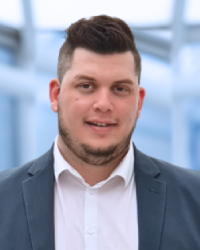
Christian, you live in Hessen - why did you decide to take a job in Regensburg? And why did you choose knowis?
When I was looking for a new professional challenge, many people were inevitably in home office due to the COVID-19 pandemic. The fact that many companies on the labor market had to respond to this enabled me to search for a new job on a larger scale. I did this thoughtfully. It was clear to me early on that I wanted to find an employer where it would be possible to work "remotely" on a sustainable basis. In the course of the pandemic, I became aware of what an enrichment the home office is for my personal work-life balance. Working at knowis AG offers me this, as the company has also recognized the advantages of this.
I work about 90 percent of my working hours remotely. I spend the remaining 10 percent at the office in Regensburg. Company and team days are then held on-site, where I can exchange ideas and socialize with my colleagues. To make the trip as climate-neutral as possible, I always stay on site for several days and plan important meetings there.
Why should applicants choose a job at knowis?
First of all because of the knowis platform, the product we offer. knowis has really created something special here and it's fun to be able to solve customers' problems with our own product. What I personally also very much like is the size of the company. knowis is no longer a start-up, which is always associated with the worry that the business idea will not work out and you will lose your job. But it is also not a large corporation where you are just a number and your own interests do not count. At knowis, we all work very closely and appreciatively with each other and every new employee who is passionate and committed can quickly recommend themselves for higher tasks here.
What does your day-to-day work look like? What are typical tasks as a business analyst?
I have been employed by knowis AG since mid-2021 and have since developed from a Business Analyst to a Senior Business Analyst. As such, I am the link between the business side of the customer and our development team. Together with our customers, I work out the requirements and discuss and specify them. In doing so, I pay attention to the customer's business requirements, but at the same time I also think about what a solution with our product could look like and what challenges exist. We work in an agile project and within the project with user stories. My job is to write these in a quality that allows the development team to extract all the relevant information from them and ultimately start implementation. Of course, I also support our customers beyond the business analysis, should the need arise somewhere. Therefore, it also happens that I support the project and release planning or the testing of the new implementations.
Beyond my current role, in the future I will not only support the customer in one project, but the entire platform with three applications. There will be more exciting tasks here, where I will take on even more responsibility. There will also be a closer exchange with our internal departments, which will allow me to delve even deeper into other topics.
What qualifications do you need to be a business analyst? What was your career path to becoming a Senior Business Analyst?
There are several options here. I completed an apprenticeship as a bank clerk and then worked as an administrator in real estate financing. There I was able to work as a specialist consultant in the business development area. Through this role, I then got into the actual project business and was able to gradually learn - with a lot of will and dedication - the methodology that I now use on a daily basis. This is essential in order to be able to move in this workspace in a serious and confident manner. In addition, you should be a strong communicator and be able to render complex things in an understandable way. A structured and analytical approach is equally important, as the issues you work on are sometimes very complex. A certain amount of assertiveness is also necessary, as there are always stressful phases.
My career path to becoming a Senior Business Analyst can be described as classic. You grow with the tasks assigned to you and thus acquire a certain sovereignty. Thanks to your solid foundation, you are able to look deeper into individual topics and gain a more global view of challenges and opportunities. This allows you to advise the customer even more comprehensively. knowis AG is very transparent and fair and you get regular feedback on your work. You discuss specific steps you need to take or qualities you are still lacking to get to the senior level. Since I was able to implement the customer's requirements as well as my personal goals, I was finally made a senior.
How is your team composed?
Here, a distinction must be made between our customers and the company internally. The customer team always consists of players from our company and colleagues from the respective customer. Together we form a team in which everyone takes on a dedicated task. Within this team, and depending on the nature of the project, we then have regular appointments and, of course, ad hoc appointments as well.
Within the company, I am part of the "Professional Services" department. This consists of business analysts, developers, support staff, and the department manager. Since we are all often tied up in our customer teams, we have defined team days that are supposed to enable us to exchange our experiences, transfer knowledge, or even hold team events once in a while. In addition, we also have an exchange meeting once a week, where we inform each other about our projects and make plans for the coming weeks.
What has been your highlight at knowis so far?
I have three things in mind that I would like to highlight. First, a POC (Editor's note: Proof of Concept. A proof of concept is supposed to prove the feasibility of the idea or show whether the idea works as planned), which we carried out for a customer last year. The goal was to build a prototype of an application for a specific technical topic in order to visualize the implementation for the customer. It was a lot of fun to start from scratch and dive into the whole "discovery phase".
My second highlight was onboarding. I spent a month in Regensburg for this. knowis AG provided me with an apartment, so I was able to settle into my new role, get to know the company and my colleagues, and also discover the beautiful city of Regensburg. And last but not least, I have a highlight every morning because I really enjoy going to work. I perceive it as an absolute privilege that I can work at home in my own office and still be able to produce high-quality work that is appropriately appreciated by knowis. I really appreciate these things and it always shows me how grateful I am for my job.
Software Developer
"When I started at knowis five years ago, I was one of the very first non-native German speakers and a foreigner in a land that was completely new to me. Right from day one my colleagues made me feel included."

Prathibha, you are one of the software developers working on the knowis isfinancial platform. What are your responsibilities?
The development of isfinancial is split into two parts, the frontend and the backend. I am part of the backend where I concentrate mostly on the implementation of features that fulfill business requirements and on the data base, so, things like storing the data. In my team, we also take responsibility for the new stories, for example the new requirements that product management creates and which we then develop. My tasks also include maintaining and fixing bugs for the existing versions of the software that are already installed at the customer's site.
You have a small daughter. How do you manage to balance career and family? How does knowis support you?
As a young working mother, I have learned to lower my expectations both professionally and privately and to keep things simple. Especially when children are still small, they need a lot of attention and care from their parents, and of course every now and then we need to see the doctor unplanned, sometimes even during my working hours. This has also never been a problem for my team. If this happens, I simply do my work at a later time.
It is important to be transparent from the beginning to meet the expectations of both employer and employee, and to find the best option for both parties. My daughter is now two years old. When I started working part-time again, she had just begun day care. The whole family had to adjust to the fact that I am now a working mom. So during this phase we had some challenges to overcome, but knowis and especially my team were really cooperative and understanding. Nobody gave me a strict timetable; I was completely flexible in terms of my working hours and the completion of my tasks. In the beginning I worked in the afternoon, from 14:00 to 18:00. Without the great support of my team during this phase, I probably would not have considered coming back.
How was the transition from full-time to part-time work for you?
I first had to get used to the change from a full-time to a part-time job. I really like my job, so it was hard for me at first that I couldn't be there for 8 hours. At the beginning I was also a bit afraid that I would no longer feel like a part of my team. But my concerns were completely unfounded, everything is just like before. My team makes me feel needed and includes me. I can also increase or decrease my working hours flexibly. In this way knowis has enabled me to have a smooth start back into working life.
Also during the Corona period, when my husband and I worked from home, it was initially difficult to manage child care and home office. But also here my team supported me: I was able to do my work when it suited me best. We arranged team meetings in a way that everybody could participate. I also found it impressive how knowis shifted the weekly company stand up [editor’s note: a meeting for the whole company to share what has happened over the past week] to a digital space. I think we even learned more from the other teams than we did in the office.
Are there any programming languages or development tools you prefer to use?
I have mostly worked with Java until now, but I started playing around with the data base a lot in my former job in India, and here at knowis it has also become a part of my responsibilities. I just love to learn about the database, somehow it just fascinates me.
Organization & Process Manager
“No matter who you approach, at knowis you will always find a helping hand and a sympathetic ear.”
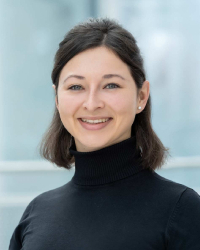
Why did you choose a job at knowis?
I was particularly attracted by the scope of activities as an Organization & Process Manager, which I could already see in the job description. In my previous position, I had already done something similar, but only in addition to my core responsibilities. I wanted to be fully responsible for these tasks for a young company like knowis AG. The other employee interviews here on the careers page also appealed to me, which is why I decided to apply for the job, and am very happy that I was successful.
What are typical tasks in your role as an Organization & Process Manager? What is the setup of your team?
I work in the department Organization. Here is where a lot of compliance topics are located. We deal with topics such as information security, data protection, emergency management, and risk management. We also review contracts for the company and support customer audits. I work in this department with a colleague. Each of us has their main areas of focus, which we have divided among ourselves according to preference and prior knowledge. My focus is on information security and data protection. We each work mainly on the assigned topics, but we also support or substitute one another. Since most of the topics overlap and affect several areas, we have a lot of consultations with each other.
For example, we write policies that develop guidelines for the company to meet compliance requirements. We are currently working on an ISO certification for an external standard regarding information security. Our task here is to build up the management system, write guidelines and implement them in the company. Such topics need to live throughout the company. We, therefore, ensure that the employees are trained. Apart from that, there are also tasks in other areas. For example, if new software is to be purchased, we check the contracts to verify that our internal requirements are met.
You mentioned the ISO certification. How did it come to this and how do you proceed?
We initiated the certification because customers are becoming increasingly interested in it. Information security is becoming more and more important. There is a growing awareness of the danger of hacker attacks and their potential harm. But we as a company also see the relevance of this topic in today's digital world. Such certification is a good and important step in demonstrating to the outside world that we take information security seriously. By becoming certified, we also want to generate a leap of faith for future customers. This signalizes in advance that we handle customer data with care.
The certification process has been going on for a while, as it is an extensive topic that requires a lot of time until the final implementation. At knowis, we have many stakeholders in the process. Some are more involved, some less. But in the end, it affects all employees. That's why it is a big part of our job to sensitize our colleagues. We constantly draw attention to lurking hazards and explain how they can be avoided. If processes change as a result of the certification, we talk to the respective departments and work out solutions together.
It is important to keep colleagues up to date at all times - Where are we at right now? What standards do we still need to meet? If you don't get everyone on board, you won't create acceptance. Nobody is helped by just imposing requirements, and that doesn't fit in with our corporate culture. We try to get everyone on board and work toward a common goal. Therefore, it is important that all of us understand the purpose behind the certification.
What distinguishes the work at knowis?
At knowis, I like the sense of community and the great togetherness. No matter who you go to, you always find a helping hand and a sympathetic ear. You notice this both in the day-to-day work and during breaks. To ensure that work and fun go hand in hand, we emphasize team activities, both large and small.
What has been your highlight at knowis so far?
For me, the audits are always a highlight. It's a great feeling every time an audit is completed. As a company, we are well prepared for the audits and this also allows us to demonstrate that we take the requirements seriously, comply with them and implement them. It's nice when everyone is supportive. It is not a departmental achievement, but a corporate achievement. Representing that is nice and fun. It's really great to walk out of an audit and say: "We did it and we did it well."
Partner Sales Manager
"The flat hierarchies at knowis significantly enhance the learning experience."
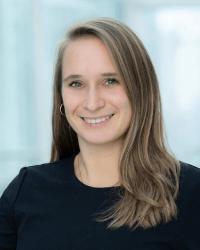
Marika, how did you find out about knowis?
While searching for potential employers, I explicitly came across my current position as Partner Sales Manager at knowis. From the beginning, it was important to me that my future job would cover an exciting field of work that would also fit into current affairs. The software sector is not only huge, but is and will most likely remain of great importance. Combined with the disruptive developments in the finance sector, where there is generally always something going on, my current job includes exciting topics as well as requirements from both worlds. To me, this sounded like the perfect challenge.
What are typical tasks in your role as Partner Sales Manager?
I mainly deal with business and company development in cooperation with partners at knowis, wherein the identification and acquisition of new partners are just as much a part of my tasks as the cooperation with and support of existing partners. It is particularly exciting that I am part of the complete lifecycle due to my diverse activities - from market research and product presentation to potential partners, to joint strategy workshops and contract negotiations. If a partner is successfully acquired, I am also responsible for the entire follow-up support process. This means that I support the identification of opportunities in the market as well as the realization of projects. In addition, I continuously coordinate with partners on new business opportunities and customers.
What qualifications do you need for the Partner Sales department at knowis?
In general, personality and openness are important here. You should also be able to deal with uncertain situations and have enough self-confidence to approach partners worldwide. You also need to have a certain awareness of personal interactions, for example being able to read the body language of others and not being shy about approaching people. An affinity for technical processes or previous technical knowledge is also an advantage, as the cooperation with partners or end customers often takes place with CTOs, technical traders or developers. In any case, at knowis you will be given sufficient time and support for familiarization. Finally, knowledge of English is an absolute must, as this is not only our company language, but we also work and communicate mainly with international partners and customers, especially in our department.
What distinguishes the work at knowis?
At knowis, you can always ask questions and receive continuous feedback on your own work. The corporate climate is characterized by openness and a willingness to help, which, for example, also enabled me to make a lateral move. In addition, there is a very personal atmosphere among the staff, which makes knowis a very familiar place. At lunch, everyone is present, from the working student to the CEO where there is also plenty of opportunity for private interaction. In addition, the possibility to work remotely gives you a lot of freedom and more flexibility in your everyday life.
knowis is a specialized software vendor located in Regensburg, Germany. Founded in 2004, our mission is to enable people and organization to master their digital re-invention. The focus of our product and service portfolio is development acceleration for cloud-native, enterprise-grade business solutions.
Hermann-Koehl-Str. 2a
93049 Regensburg, Germany Phone: +49 (941) 409 249 - 0
E-mail: info@knowis.de
